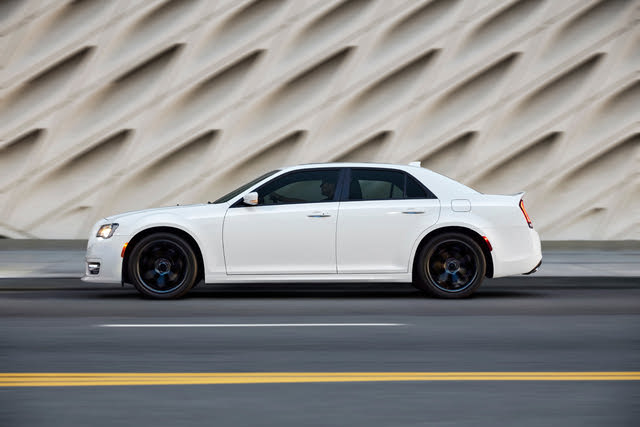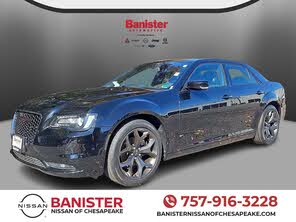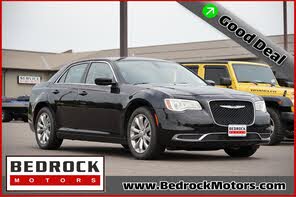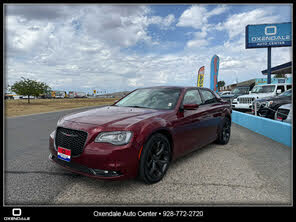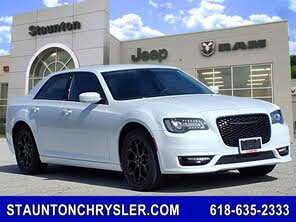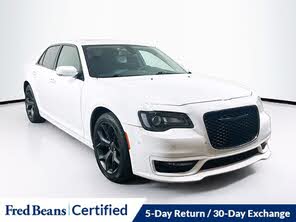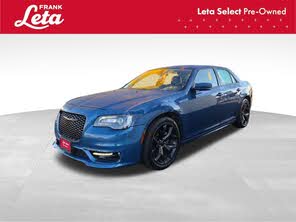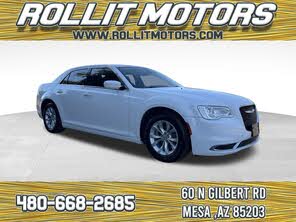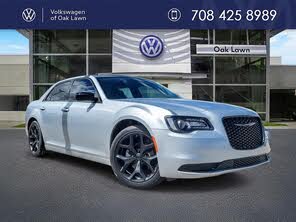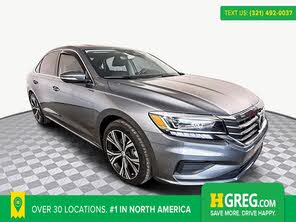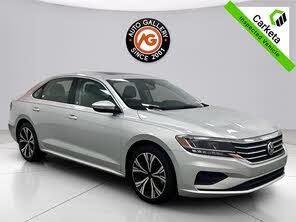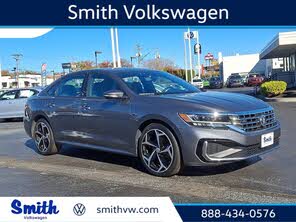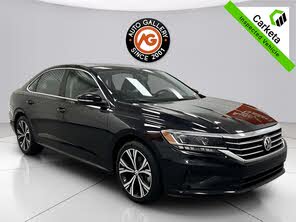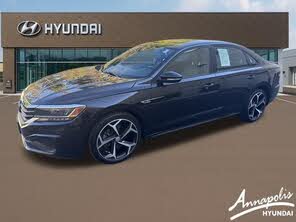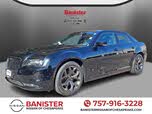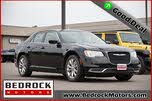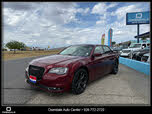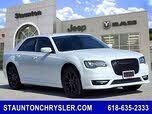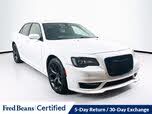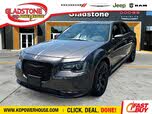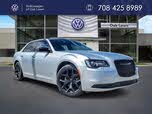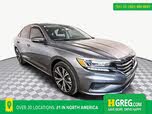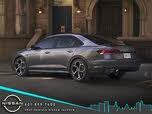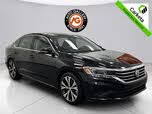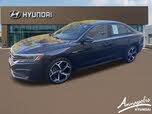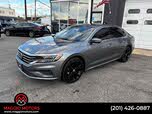2022 Chrysler 300 vs 2021 Volkswagen Passat
Overview | |
MSRP$23,995 | MSRP$33,545 |
Listings214 | Listings256 |
Ratings & Reviews | |
User Reviews | User Reviews |
Expert reviews6.5 out of 10 | Expert reviews |
Pros
Cons
| |
2021 Volkswagen Passat Reviews SummaryDespite its German branding, the 2021 Volkswagen Passat is an All-American midsize sedan. It was developed specifically for the United States market, and it’s built in Chattanooga, Tennessee. In 2011, when the Americanized Passat was launched, VW thought the sedan was the key to dominating the U.S. market. Midsize sedans like the Honda Accord and Toyota Camry were still the default choice for most buyers at that time, after all. A lot has changed since then—SUVs are surging in popularity, and a diesel-emissions scandal has forced VW to focus more on electric cars—but the Passat rolls on. With the flashier Arteon now in the lineup, however, the Passat has been repositioned as VW's value-focused midsize sedan. The Passat got a significant update for the 2020 model year, so changes for 2021 are fairly limited. The previously-available Passat SEL trim level is gone, leaving just the base S, SE, and R-Line models. Adaptive cruise control is now standard across the board, and some trim levels get more standard equipment as well. Our test car was a mid-level SE model. | |
2022 Chrysler 300 Reviews Summary | |
No video found | No video found |
Popular Features & Specs | |
Engine2.0L 174 hp I4 | Engine3.6L 292 hp V6 |
Drive TrainFWD | Drive TrainRWD |
Seating Capacity5 | Seating Capacity5 |
Horsepower174 hp @ 5200 rpm | Horsepower292 hp @ 6350 rpm |
MPG City24 | MPG City19 |
MPG Highway36 | MPG Highway30 |
Engine | |
Engine Name2.0L 174 hp I4 | Engine Name3.6L 292 hp V6 |
Torque206 lb-ft @ 1700 rpm | Torque260 lb-ft @ 4800 rpm |
Horsepower174 hp @ 5200 rpm | Horsepower292 hp @ 6350 rpm |
DrivetrainFWD | DrivetrainRWD |
Fuel Economy | |
MPG City24 | MPG City19 |
MPG Highway36 | MPG Highway30 |
Interior | |
Seating Capacity5 | Seating Capacity5 |
Safety | |
Front Crash Overall4 | Front Crash Overall4 |
Side Crash Overall5 | Side Crash Overall5 |
Dimensions & Capacity | |
Cargo Space15.9 cu ft | Cargo Space16.3 cu ft |
Curb Weight3314 lbs | Curb Weight4013 lbs |
Height58.7 in | Height58.5 in |
Length193.6 in | Length198.6 in |
Width72.6 in | Width75.0 in |
Wheelbase110.4 in | Wheelbase120.0 in |
Maximum Payload948 lbs | Maximum Payload1087 lbs |
Number of doors4 | Number of doors4 |
Maximum Towing Capacity | Maximum Towing Capacity1000 lbs |
Overview | ||
MSRP | $23,995 | $33,545 |
Listings | ||
Ratings & Reviews | ||
User reviews | ||
Expert reviews | 6.5 out of 10Read full review | |
Pros & cons | Pros
Cons
| |
Summary | Despite its German branding, the 2021 Volkswagen Passat is an All-American midsize sedan. It was developed specifically for the United States market, and it’s built in Chattanooga, Tennessee. In 2011, when the Americanized Passat was launched, VW thought the sedan was the key to dominating the U.S. market. Midsize sedans like the Honda Accord and Toyota Camry were still the default choice for most buyers at that time, after all. A lot has changed since then—SUVs are surging in popularity, and a diesel-emissions scandal has forced VW to focus more on electric cars—but the Passat rolls on. With the flashier Arteon now in the lineup, however, the Passat has been repositioned as VW's value-focused midsize sedan. The Passat got a significant update for the 2020 model year, so changes for 2021 are fairly limited. The previously-available Passat SEL trim level is gone, leaving just the base S, SE, and R-Line models. Adaptive cruise control is now standard across the board, and some trim levels get more standard equipment as well. Our test car was a mid-level SE model. | |
Video | No video found | No video found |
Popular Features & Specs | ||
Engine | 2.0L 174 hp I4 | 3.6L 292 hp V6 |
Drive Train | FWD | RWD |
Seating Capacity | 5 | 5 |
Horsepower | 174 hp @ 5200 rpm | 292 hp @ 6350 rpm |
MPG City | 24 | 19 |
MPG Highway | 36 | 30 |
Engine | ||
Engine Name | 2.0L 174 hp I4 | 3.6L 292 hp V6 |
Torque | 206 lb-ft @ 1700 rpm | 260 lb-ft @ 4800 rpm |
Horsepower | 174 hp @ 5200 rpm | 292 hp @ 6350 rpm |
Drivetrain | FWD | RWD |
Fuel Economy | ||
MPG City | 24 | 19 |
MPG Highway | 36 | 30 |
Interior | ||
Seating Capacity | 5 | 5 |
Safety | ||
Front Crash Overall | 4 | 4 |
Side Crash Overall | 5 | 5 |
Dimensions & Capacity | ||
Cargo Space | 15.9 cu ft | 16.3 cu ft |
Curb Weight | 3314 lbs | 4013 lbs |
Height | 58.7 in | 58.5 in |
Length | 193.6 in | 198.6 in |
Width | 72.6 in | 75.0 in |
Wheelbase | 110.4 in | 120.0 in |
Maximum Payload | 948 lbs | 1087 lbs |
Number of doors | 4 | 4 |
Maximum Towing Capacity | 1000 lbs | |

By: CarGurus + AI
At CarGurus, our team of experienced automotive writers remain at the heart of our content operation, conducting hands-on car tests and writing insightful guides that are backed by years of industry experience. To complement this, we are harnessing AI to make our content offering more diverse and more helpful to shoppers than ever. To achieve this, our AI systems are based exclusively on CarGurus content, ratings and data, so that what we produce is both unique to CarGurus, and uniquely helpful to car shoppers.

